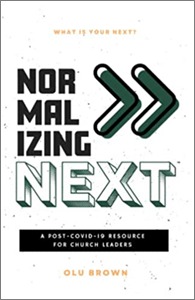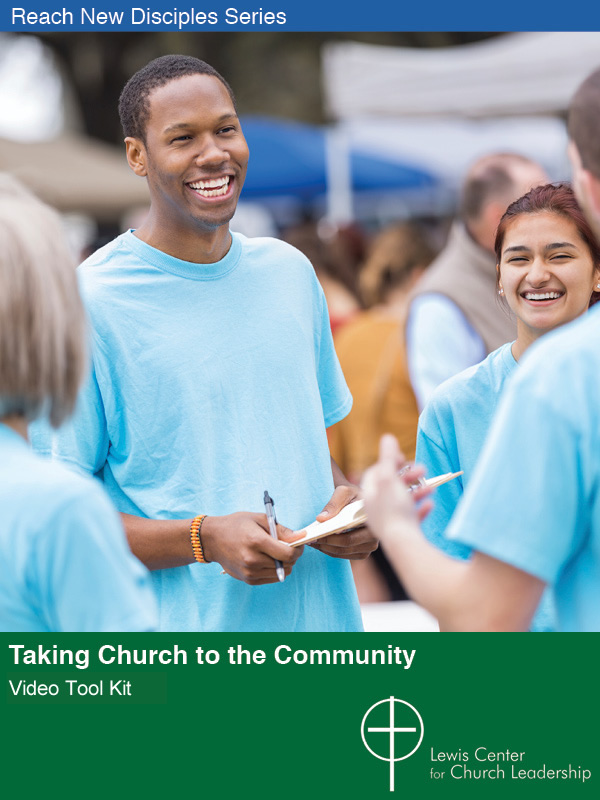Olu Brown says virtual church has a specific set of needs whether it is part of a hybrid worship or a stand-alone worship service for streaming only. He outlines four core areas critical to formulating a successful virtual worship experience — team, technology, planning, and hospitality.
1. Online worship team
Identify the staff and volunteers that will comprise your team and the different platforms and ways in which you desire to reach an online audience. These individuals are responsible for helping to ensure that the online worship experience is recorded, broadcast live, or stored for broadcast on-demand at a later time. In many churches, it may be just one person, often the pastor or a volunteer, who is currently leading this effort. If this is your reality, don’t be discouraged. Begin thinking about creative ways to engage people to help and join the virtual worship team. Evaluate how to reach human resources needed to help with key positions to orchestrate online worship (training events for students and volunteers, outreach to the community colleges for assistance, companies within your community that deal with technology issues, etc.).
2. Online worship technology
Identify the equipment and services needed to facilitate the production of online services. This spans from software that helps to launch and host your online worship experiences to hardware that enables the church to broadcast virtually around the world. Thankfully there are many companies and resources available to research and use. There is also the hardware side of technology such as smartphones, cameras, lights, audio, and computers. Each of these items are necessary to have a successful online virtual experience. Determine a budget and a plan of priority for upgrading or extending services for not only the present but dream for the future.
3. Online worship planning
Worship planning helps ensure that the online congregation receives all that they need from God and your team. The same thought and attention that goes into planning in-person worship needs to be given to virtual worship. As you plan the order of worship, consider the parts of worship that will remain and what will be deleted. Determine adaptations unique to the online environment. For example, specific graphics needed, invitational and inclusive language for the online audience, and ways in which to build community through this environment. Also, while in-person service may be longer, your online service should be no longer than one hour.
4. Online moderators/hosts
Virtual hosts, sometimes known as host/hostesses or hospitality agents, contribute to the success of virtual worship. Identify people who can monitor the online broadcast and interact with those viewing. Online hosts are like ushers or hospitality hosts during online worship. The hosts help the viewer navigate the experience and can even help the online team become aware of an issue that might be occurring during worship such as high or low volume, distorted picture, or prayer requests from an online viewer. They may “speak” personally to those who have logged in to view a live stream, may give more information regarding the announcements, may invite participation in discussion of the message or ways in which to interact with the speaker, include encouragement to offer prayer concerns, give opportunities to join in community, and always give a word of thanks for participating in worship.
In each of these areas, there are varying levels and needs. It is a journey, not a destination. Rather than reaching for perfection, trust that the people prefer authenticity more than perfection.
 This material is adapted from Normalizing Next: A Post COVID-10 Resource for Church Leaders by Olu Brown and from Normalizing Next Guidebook by Olu Brown and Glenna B. Manning (Culverhouse LLC, 2022). These books are available at Amazon.
This material is adapted from Normalizing Next: A Post COVID-10 Resource for Church Leaders by Olu Brown and from Normalizing Next Guidebook by Olu Brown and Glenna B. Manning (Culverhouse LLC, 2022). These books are available at Amazon.
Related Resources
- Moving Forward with Hybrid Worship by Olu Brown
- 4 Keys to Moving from Online Worship to Online Ministry by Nicole Reilley
- 5 Dos and Don’ts to Make the Most of Your Digital Worship by Tim Snyder
- Participation & Presence: Leading Meaningful Digital Worship, a free video resource from the Lewis Center







